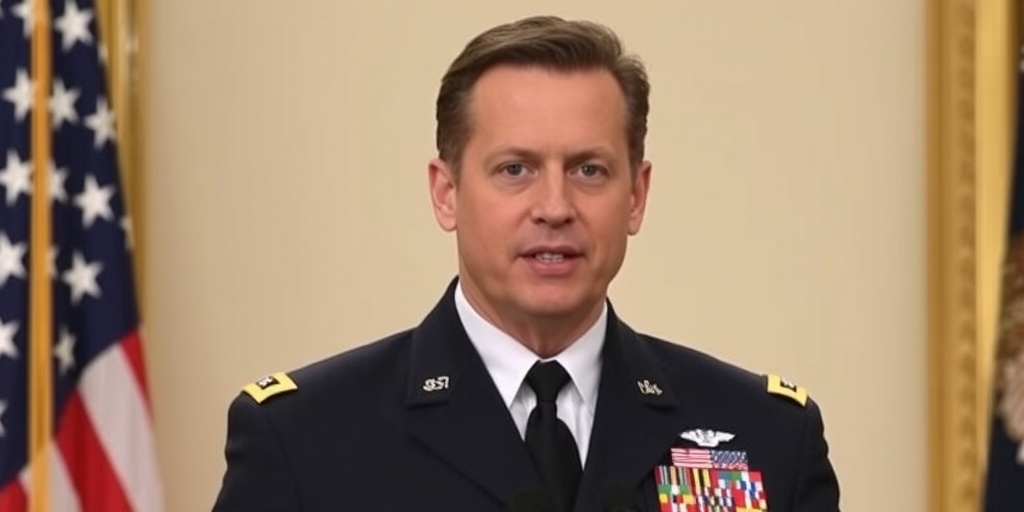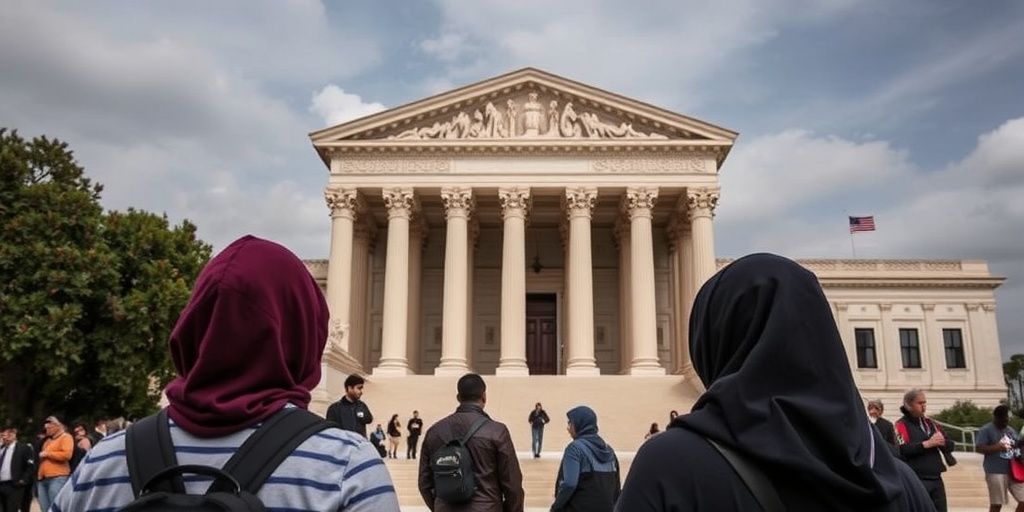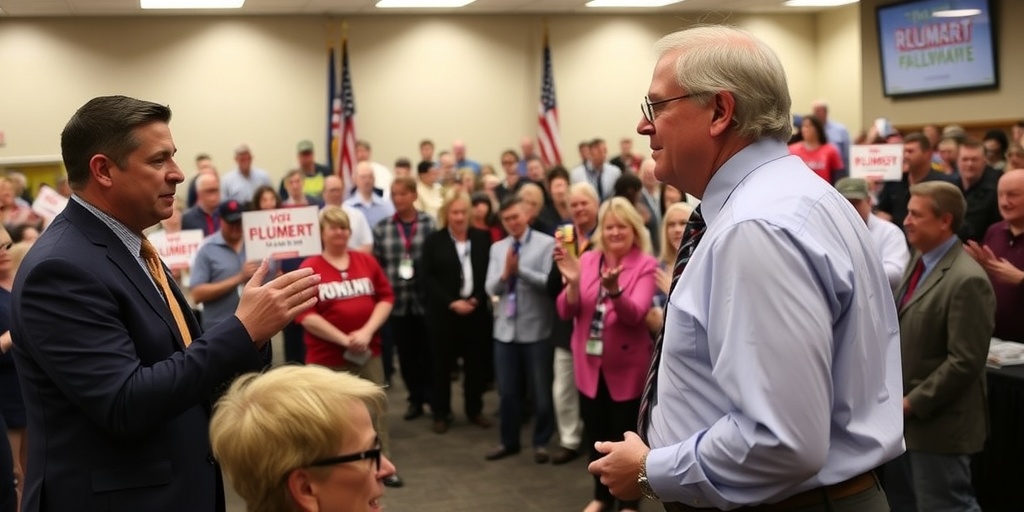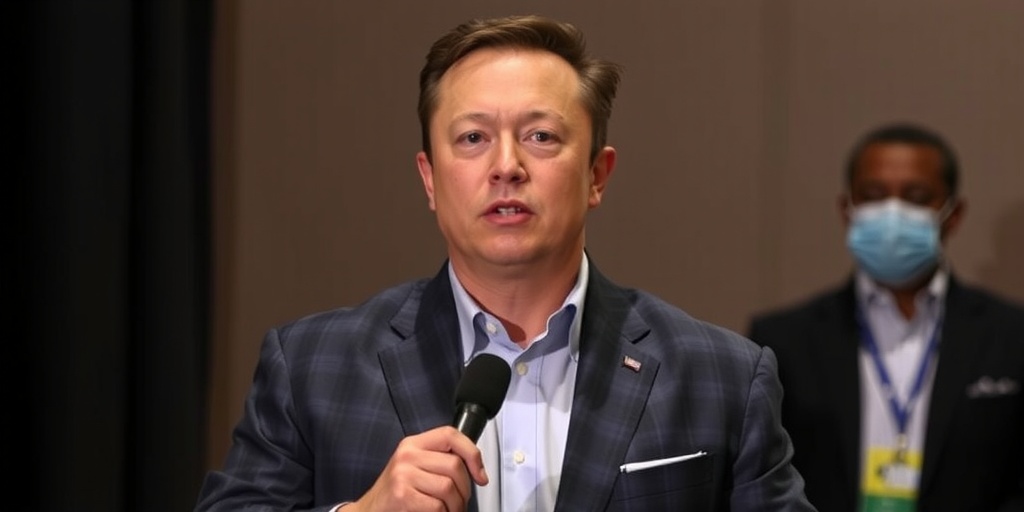Now Reading: Hegseth Supports Trump’s Firing of Joint Chiefs Chairman
-
01
Hegseth Supports Trump’s Firing of Joint Chiefs Chairman
Hegseth Supports Trump’s Firing of Joint Chiefs Chairman

Hegseth Defends Firings in Trump Administration Amid Controversy
In a recent appearance on "Fox News Sunday," Defense Secretary Pete Hegseth defended President Trump’s controversial decision to fire General Charles Q. Brown Jr., the chairman of the Joint Chiefs of Staff, arguing that the general was "not the right man for the moment." This unprecedented move has sparked significant debate within military and political circles, as it departs from a long-standing tradition of stability in the highest ranks of the U.S. military.
General Brown was removed from his position on Friday as part of a broader shake-up within the Defense Department, which included the firing of the chief of naval operations and top military lawyers. Hegseth claimed that such actions are not without precedent, noting that presidents from Franklin D. Roosevelt to Barack Obama have dismissed military officers during their tenure. However, it’s crucial to highlight that a chairman of the Joint Chiefs has never been outright fired before, even as the position has seen its terms altered in the past—most notably when the George W. Bush administration chose not to renew General Peter Pace’s term in 2007 amid opposition from Congress.
"The president wants the right people around him to effectively execute the national security approach we are taking," Hegseth remarked, framing the firings as a necessary step towards aligning the Defense Department with the administration’s strategic vision.
Opposing Hegseth’s views, Senator Jack Reed, the top Democrat on the Armed Services Committee, characterized the firings as "completely unjustified." During his appearance on ABC News’s “This Week,” Reed suggested that the administration’s actions are geared toward ensuring that the Defense Department remains loyal to the president. “They want everyone there to do what they’re told, regardless of the law,” he asserted, adding that the dismissal of military lawyers is particularly alarming as it raises questions among capable leaders about their place within the military.
Reed further claimed that by removing legal advisors, the administration may be paving the way for actions that contradict legal frameworks. “If you’re going to break the law, the first thing you do is you get rid of the lawyers,” he stated, encapsulating concerns that the firings might signal a troubling trend towards disregarding legal counsel within military operations.
In response to criticism of his firings, Hegseth argued that traditionally, senior military lawyers have been chosen through internal mechanisms, but he now seeks “fresh blood.” He emphasized his intent to broaden the candidate pool for these pivotal roles, aiming to find the most qualified military lawyers to guide each branch of the armed services effectively. “Ultimately, we want lawyers who provide sound constitutional advice and don’t exist just to be roadblocks,” he explained.
The dialogue surrounding these decisions was further complicated by discussions concerning the administration’s approach to the ongoing war in Ukraine. When pressed about Trump’s stance on Ukrainian President Volodymyr Zelensky, Hegseth defended the administration’s dialogue with Russia, suggesting that recent efforts have brought the Kremlin to the negotiation table. “Standing here and saying, ‘you’re good, you’re bad, you’re a dictator, you’re not a dictator, you invaded, you didn’t’ — it’s not useful,” Hegseth noted, asserting that a more nuanced approach is necessary for productive discussions.
Conversely, Senator Reed accused Trump of effectively “surrendering to the Russians” and lacking the diplomatic finesse required to navigate such sensitive international issues. He criticized Trump as a leader who admires Russian President Vladimir Putin, claiming that he does not grasp the significance of Ukraine’s struggles for sovereignty. “This is not a statesman or a diplomat,” Reed stated emphatically. “This is just someone who admires Putin, does not believe in the struggle of the Ukrainians, and is committed to cozying up to an autocrat.”
The fallout from the recent firings and the ongoing discussions regarding American foreign policy illustrate the deep divisions within the government and the challenges facing the military under the current administration. As the Trump administration pushes forward with its agenda, the implications of these decisions will be closely scrutinized by allies and adversaries alike, shaping the future of U.S. military leadership and international relations.
Stay Informed With the Latest & Most Important News
Previous Post
Next Post
-
 01New technology breakthrough has everyone talking right now
01New technology breakthrough has everyone talking right now -
 02Unbelievable life hack everyone needs to try today
02Unbelievable life hack everyone needs to try today -
 03Fascinating discovery found buried deep beneath the ocean
03Fascinating discovery found buried deep beneath the ocean -
 04Man invents genius device that solves everyday problems
04Man invents genius device that solves everyday problems -
 05Shocking discovery that changes what we know forever
05Shocking discovery that changes what we know forever -
 06Internet goes wild over celebrity’s unexpected fashion choice
06Internet goes wild over celebrity’s unexpected fashion choice -
 07Rare animal sighting stuns scientists and wildlife lovers
07Rare animal sighting stuns scientists and wildlife lovers





















